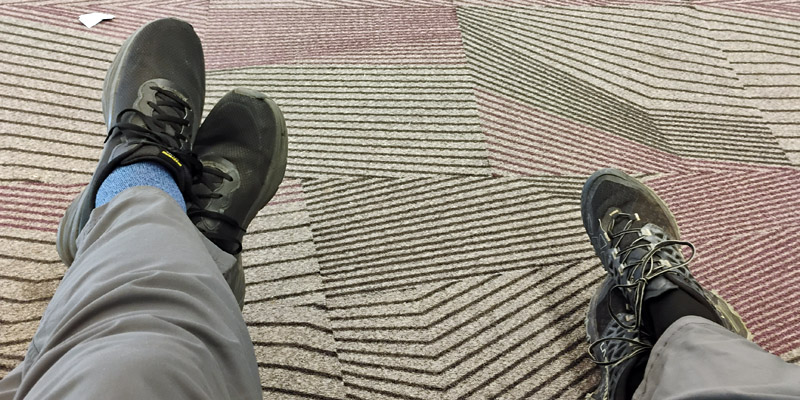|
"Things are more like they are now than they ever were before," US President Dwight D Eisenhower is often alleged to have said. I like Ike, to my mind the last truly decent Republican president. I was, after all, born during his administration, long long ago. It's just too bad that he never said any such thing. The true source of this peculiar aphorism is unknown; likely it was uttered by some wag who was parodizing a politician's propensity for speaking without saying much of anything. It was later frequently attributed to Gerald Ford (who, come to think of it, was also a decent guy, but doesn't really count), and it would have fit well within the oeuvre of either Yogi Berra or Dan Quayle. But if there ever was anyone who could have known how it was that things got to be the way they were, it would have been Eisenhower, who as Supreme Allied Commander was as responsible as anyone for victory in World War II, and who subsequently presided over two terms of stability, prosperity, and relative peace.
My country is in the late stages of a presidential election campaign that has me wondering whether my fellow citizens have any memory of how it is we got to where we are. The price of eggs (and other commodities) seems to be one of the major issues. It's routine for the challenger in an election to ask if we are better off today than we were four years ago. It's an effective ploy, because there's always a reason to be unhappy, and whatever that reason was four years ago has been forgotten, even if it was a worldwide pandemic. I am nevertheless boggled that the electorate seems to have forgotten that four years ago, you couldn't go anywhere but work (if you were lucky enough to still have a job) and the grocery store, where you had to stay six feet away from everyone else, and were lucky if you could find eggs or toilet paper or any number of other everyday necessities. The administration of the president at the time, now the challenger, was marked by chaos, graft, and denial of the fact-based universe, and we were glad to be rid of him. His successor guided us through the pandemic, kept the economy alive, tamed post-pandemic inflation, and brought us to a place where we can comfortably complain about the price of eggs. We might ask ourselves, "How did we get here?" But we don't. Eggs were cheaper when the other guy was in, we are told; therefore, if we vote him back in, eggs will be cheap again.
Unlike so many of my fellow Americans, I remember well the ways in which the Covid pandemic has affected my life. I was fortunate to have retired before it hit, but for two years I wasn't able to travel in the manner to which I had become accustomed. A small complaint, in the larger picture; I did not die. When I could travel again, I concentrated on major bucket list items: Norway, the Celtic Connections festival, Dingle with Bobby. And so it happens that I haven't dedicated a lengthy trip to Scotland in five years. Ron and I have planned to touch some familiar bases, and to visit a few new spots. The trip isn't as long as I would like, thanks to inflated prices for hotel rooms and pints of beer, which the next president will no doubt fix. We are nonetheless looking forward to a few weeks away from the constant barrage of election propaganda.
Saturday 12 October 2024--Our Icelandair flight from Boston to Keflavík, with onward connection to Glasgow, is delayed, delayed again, and again. Apparently there is a problem with the plane, and a new one has to be flown in from somewhere or other. I drove buses for forty years and have some inkling about logistics, but I have no idea how air crews are scheduled normally, let alone in circumstances like this. Departure is, in the end, three hours or so late. My experience tells me that onward flights to Europe will be held until we arrive, but there must be a limit. In the worst case, the airline will be responsible for lodging a planeload of travelers in Iceland overnight, and getting us to our destinations the next day. I've learned to plan for such eventualities.
Next
|

























